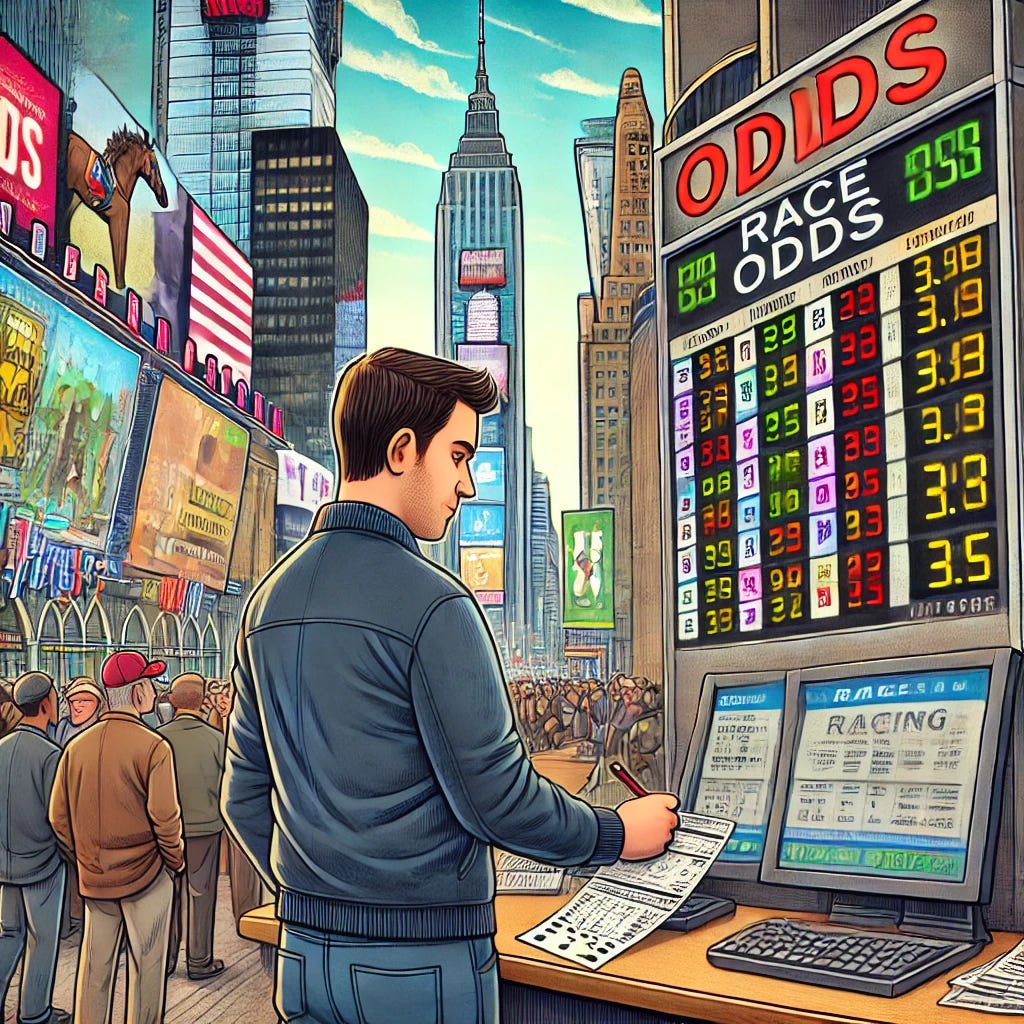“Remain Calm! All is well!” ~ Chip Diller, Animal House (1978)
With allergy season upon us, I wish you a preemptive gesundheit due to the dust and the dander or that pesky grass pollen. Or maybe, your sneezing is an adverse reaction to the continuation of a decade long election conversation in New York City.
Less than 6 months into the Trump administration, NYC will be holding its primaries for mayor. Given the trend of NYC voters last fall, it is no guarantee that the winner of the Democratic Party primary will be elected mayor. The winner should be seen as a favorite though.
Judging who is the “favorite” can be quantified by models – such as the 2xParked one soon to be updated– which translate polling data into odds. Another “favorite” interpretation is through betting markets, which is what 2xParked will be looking at today.
What do the bettors say?
Polymarket now allows betting on the Democratic Party primary for NYC mayor, with Gov. Andrew Cuomo leading the way at 75% (as of Monday March 24).
Is this actually predictive?
There are many studies proving that aggregating independent expert prognostications is usually better at predicting probabilities of future events than a singular model. Models are subject to bias from data selection, modeling technique, and their underlying assumptions and use. Aggregating a set of independently constructed models -- which could include data-based or expert opinion experience based models -- will likely outperform any individual model in the long run due to a reduction in bias impact.
There is an argument that can be made these odds are made from a panel of experts predicting the future.
Bettors have money on the line, so they have stakes and incentives that talking heads and online trolls do not have. Although they might not be “experts” in the sense of being labeled as political scientists or analysts, there is likely a chance that bettors, on aggregate, feel more confident than the average person in beating the market odds to make a profit.
Similar to sports books, there is incentive from prediction markets to construct the best odds to (1) encourage people to bet, (2) maximize its profits, and (3) minimize risk. Prediction markets also utilize data from betting patterns to change the odds on a dime’s notice to accomplish its objectives.
In sports gambling, it has proven to be difficult to make predictable and sustainable profits. Prediction markets are no different. The odds often represent prediction.
Prediction markets are the end all be all?
Although informative, there are a few things to be wary of.
1. Probabilities do not equal fact. The prediction markets had Trump aggressively winning over Harris in 2024. These same markets also had Trump destroying Biden with near certainty late on election night 2020 before bettors realized there were uncounted votes in swing states. Unless something is a definitive fact (0% or 100%), there is still a chance.
2. The incentive structure when creating odds is not to be right. The incentive is for bettors to make money and for the marketplace to make money. Although the overlap is often one-to-one, in a small market like this — where only $6M has been bet so far — one or two very large bets can manipulate the odds drastically.
3. Correlation is not causation: our favorite expression. The betting lines are set in a way to monetize bettors’ (and non-US based bettors at that) sentiment. The probabilities are only then implied based off the betting lines. Without knowing the inputs of all the bettors, there is little obvious inherent causal relationship between the odds what will happen.
What does this mean for me, personally?
None of this is meant be used as financial or betting advice. Rather, it is a guide to make you sound smarter at your Upper East Side soirees or be used as incremental data to your personal peaked interest and analyses. Here are a few closing points:
The race is not over until the votes are counted, so don’t use odds as an excuse not to vote.
Saying “the betting market was right” is a really stupid thing to say. Ask instead, “why were the odds from [experts, friends, etc.] so much [lower/higher] than the betting markets?”
Keep supporting your local news and newsletters. The best thing for you is to be informed so you can make the best decision for our City at the polls.




